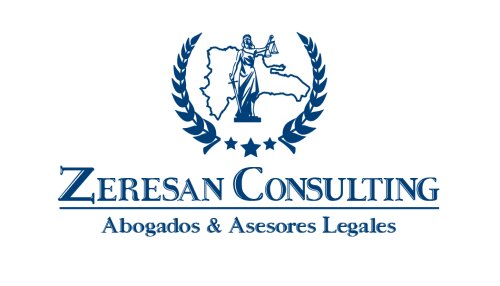Best Labor Law Lawyers in Dominican Republic
Share your needs with us, get contacted by law firms.
Free. Takes 2 min.
Or refine your search by selecting a city:
List of the best lawyers in Dominican Republic
About Labor Law in Dominican Republic
Labor Law in the Dominican Republic is primarily governed by the Labor Code, which provides a comprehensive framework for the regulation of employer-employee relationships. This legal framework was designed to balance the interests of both parties and ensure fair labor practices. It encompasses a wide array of labor-related matters, including employment contracts, wages, working hours, and termination processes. The Labor Code also addresses specific regulations for sectors such as construction, agriculture, and tourism, which are significant to the Dominican economy.
Why You May Need a Lawyer
There are several situations where individuals might need legal advice or representation in labor law matters in the Dominican Republic. Common scenarios include disputes over wrongful termination, wage discrepancies, discrimination or harassment in the workplace, and issues related to overtime pay. Employers may also require legal guidance on compliance with labor regulations, drafting employment contracts, and handling disputes with employees. Whether you are an employee or employer, a lawyer specializing in labor law can provide valuable assistance in navigating the complexities of legal requirements and protecting your rights.
Local Laws Overview
The Dominican Republic's labor laws are recognized for their worker-friendly policies. Key aspects include:
- Employment Contracts: Must be in writing, detailing job functions, compensation, and duration.
- Minimum Wage: Varies by sector and is established by government decree. Regular adjustments are made to reflect economic conditions.
- Working Hours: The standard workweek is 44 hours, with daily maximums of 8 hours.
- Overtime Compensation: Employees must be paid at a higher rate for work beyond regular hours.
- Termination and Severance: Specific protocols must be followed for lawful dismissals, often requiring severance payments.
- Social Security and Benefits: Employers are required to contribute to social security, providing health insurance and pensions to employees.
Frequently Asked Questions
What are my rights as an employee in the Dominican Republic?
Employees are entitled to fair wages, safe working conditions, and protection against wrongful termination. They also have rights to paid leave and social security benefits.
What should be included in an employment contract?
An employment contract should specify job duties, salary, working hours, duration of employment, and terms for termination. It should be signed by both parties.
How is the minimum wage set in the Dominican Republic?
The minimum wage varies by industry and is set by tripartite councils that include government, employer, and worker representatives. It is periodically reviewed and adjusted.
Can an employer terminate an employee without cause?
Employers can terminate employees without cause, but they must provide advance notice or pay severance, following the guidelines set by the Labor Code.
What is the standard workweek, and how is overtime calculated?
The standard workweek is 44 hours, with a maximum of 8 hours per day. Overtime is typically paid at a rate of 135% to 200% of the regular rate, depending on when it is performed.
Are there specific laws regarding maternity leave?
Yes, female employees are entitled to 14 weeks of maternity leave, six of which should be taken after childbirth, with paid leave provided by social security.
How does social security work for employees?
Social security contributions cover healthcare, maternity, disability, old age, and survival pensions. Both employers and employees contribute to the social security system.
What legal recourse do I have if I face workplace discrimination?
Employees facing discrimination can file a complaint with the Ministry of Labor or seek legal recourse through labor courts. Legal representation can help ensure a fair process.
What role does the Ministry of Labor play?
The Ministry of Labor oversees the enforcement of labor laws, mediates disputes, and ensures compliance with regulations regarding workplace safety and employee welfare.
How are legal disputes in labor law typically resolved?
Disputes may be resolved through mediation or arbitration by the Ministry of Labor or by taking the case to the labor courts, where a legal decision will be made.
Additional Resources
For more information and assistance with labor law issues, consider these resources:
- Ministry of Labor: Offers guidance and mediation services for labor-related issues.
- Labor Courts: Handle legal disputes between employers and employees.
- Local Bar Associations: Can refer you to experienced labor law attorneys.
- Worker Unions: Provide support and resources for employees in specific sectors.
Next Steps
If you need legal assistance in labor law, begin by gathering all relevant documents and evidence related to your case. Contact a qualified labor law attorney to discuss your situation and receive personalized guidance. Consider reaching out to the Ministry of Labor or a local legal aid organization for additional support and resources. Understanding your rights and the legal channels available to you is crucial in resolving any labor law issues effectively.
Lawzana helps you find the best lawyers and law firms in Dominican Republic through a curated and pre-screened list of qualified legal professionals. Our platform offers rankings and detailed profiles of attorneys and law firms, allowing you to compare based on practice areas, including Labor Law, experience, and client feedback.
Each profile includes a description of the firm's areas of practice, client reviews, team members and partners, year of establishment, spoken languages, office locations, contact information, social media presence, and any published articles or resources. Most firms on our platform speak English and are experienced in both local and international legal matters.
Get a quote from top-rated law firms in Dominican Republic — quickly, securely, and without unnecessary hassle.
Disclaimer:
The information provided on this page is for general informational purposes only and does not constitute legal advice. While we strive to ensure the accuracy and relevance of the content, legal information may change over time, and interpretations of the law can vary. You should always consult with a qualified legal professional for advice specific to your situation.
We disclaim all liability for actions taken or not taken based on the content of this page. If you believe any information is incorrect or outdated, please contact us, and we will review and update it where appropriate.
Browse labor law law firms by city in Dominican Republic
Refine your search by selecting a city.














